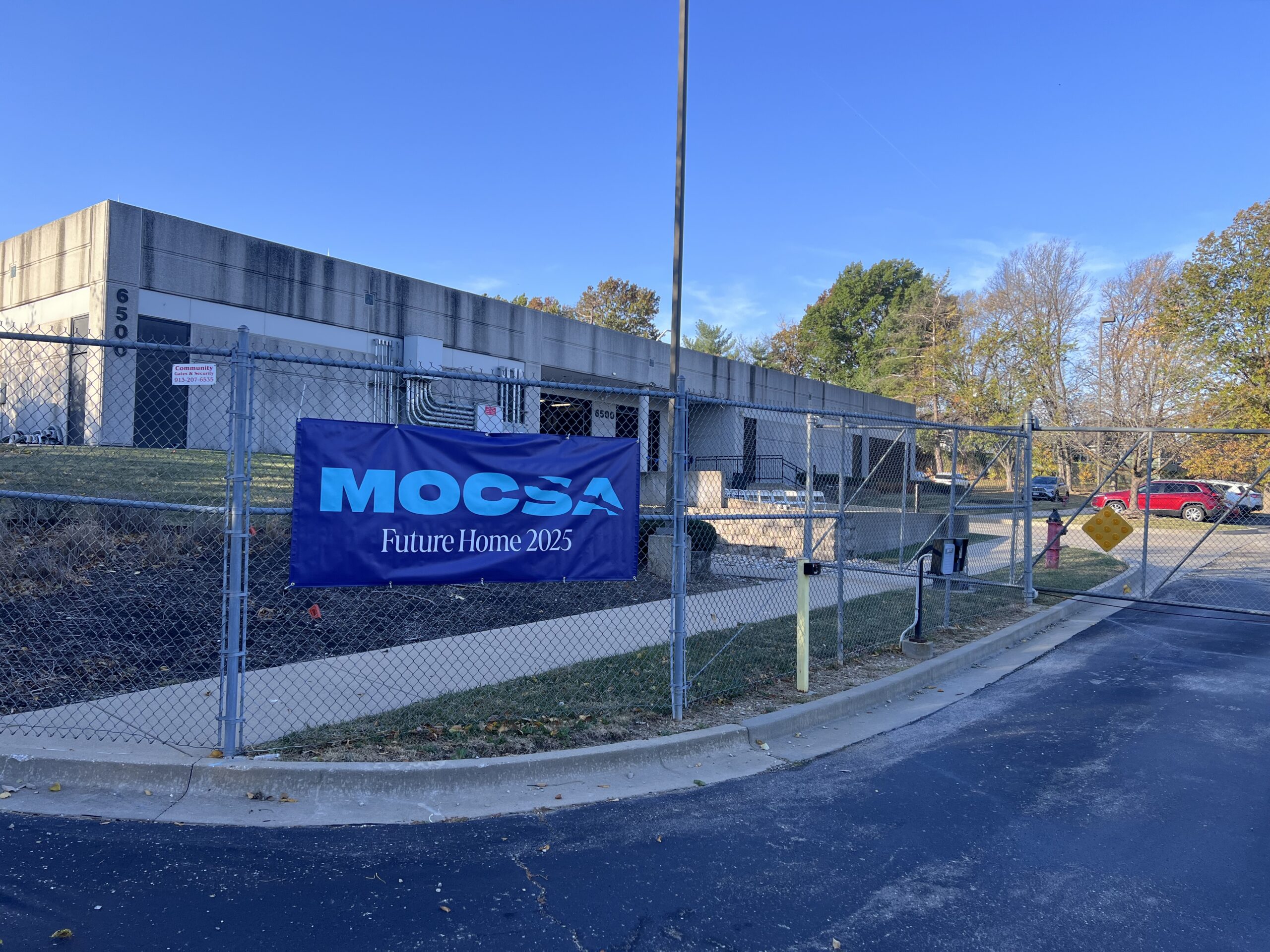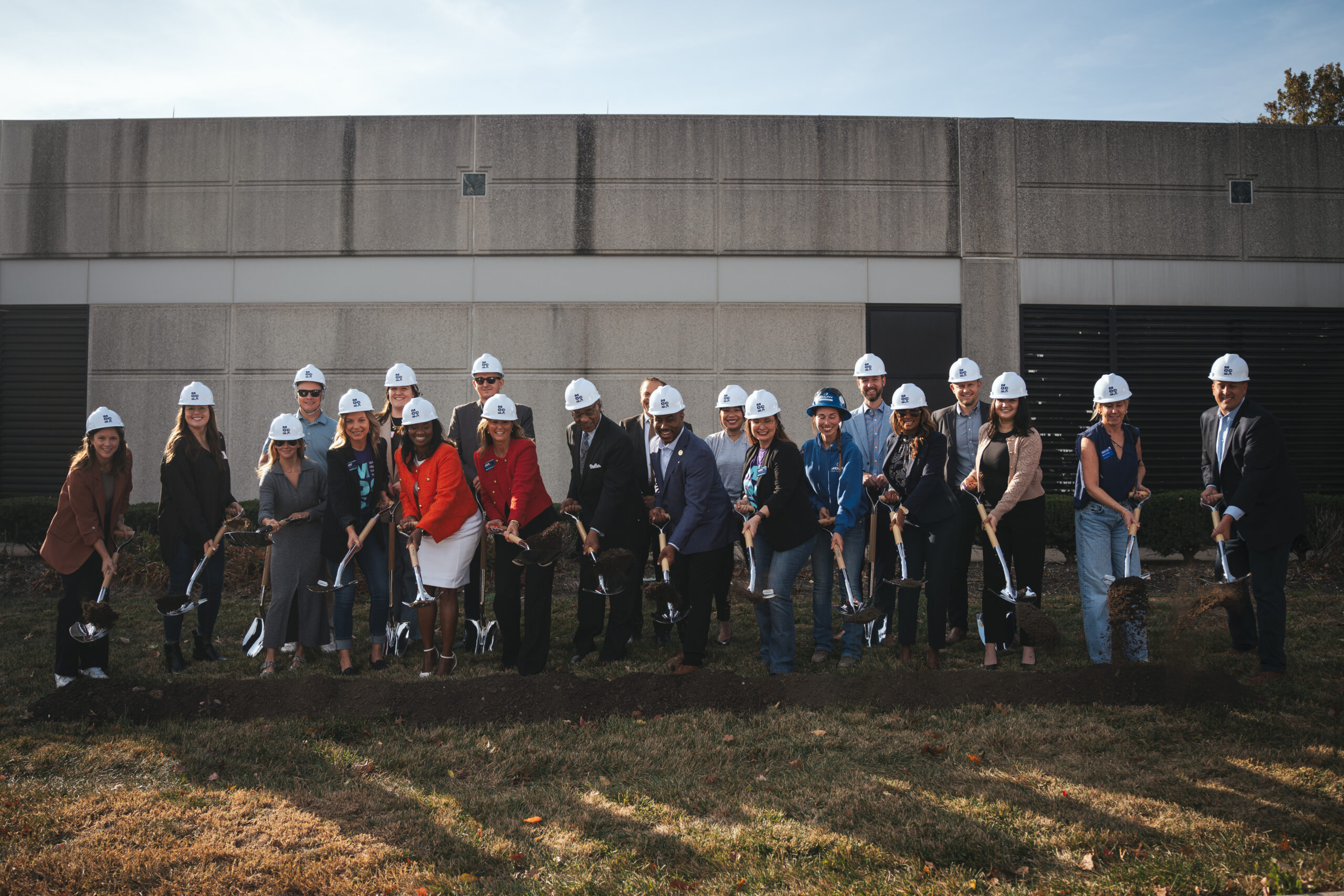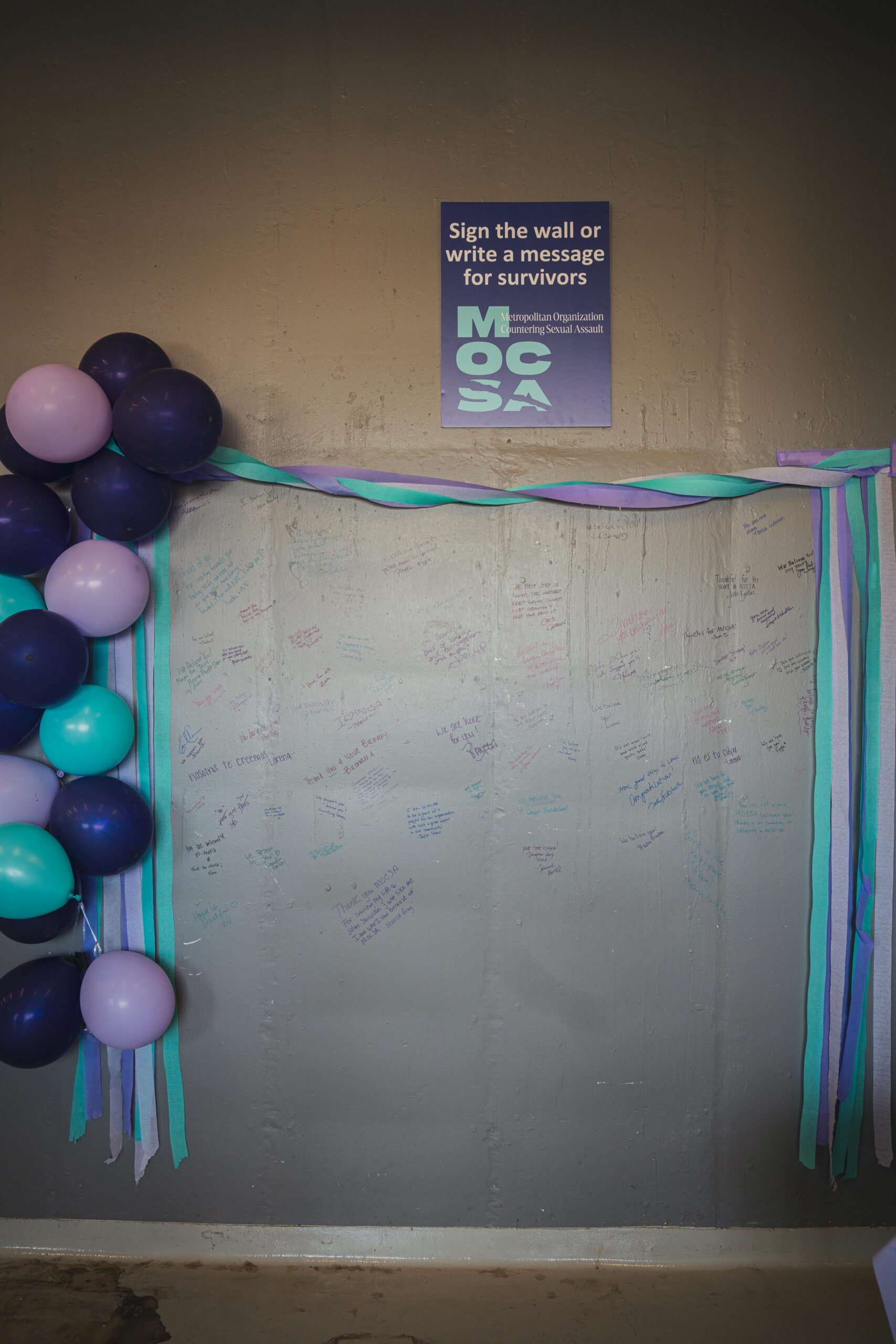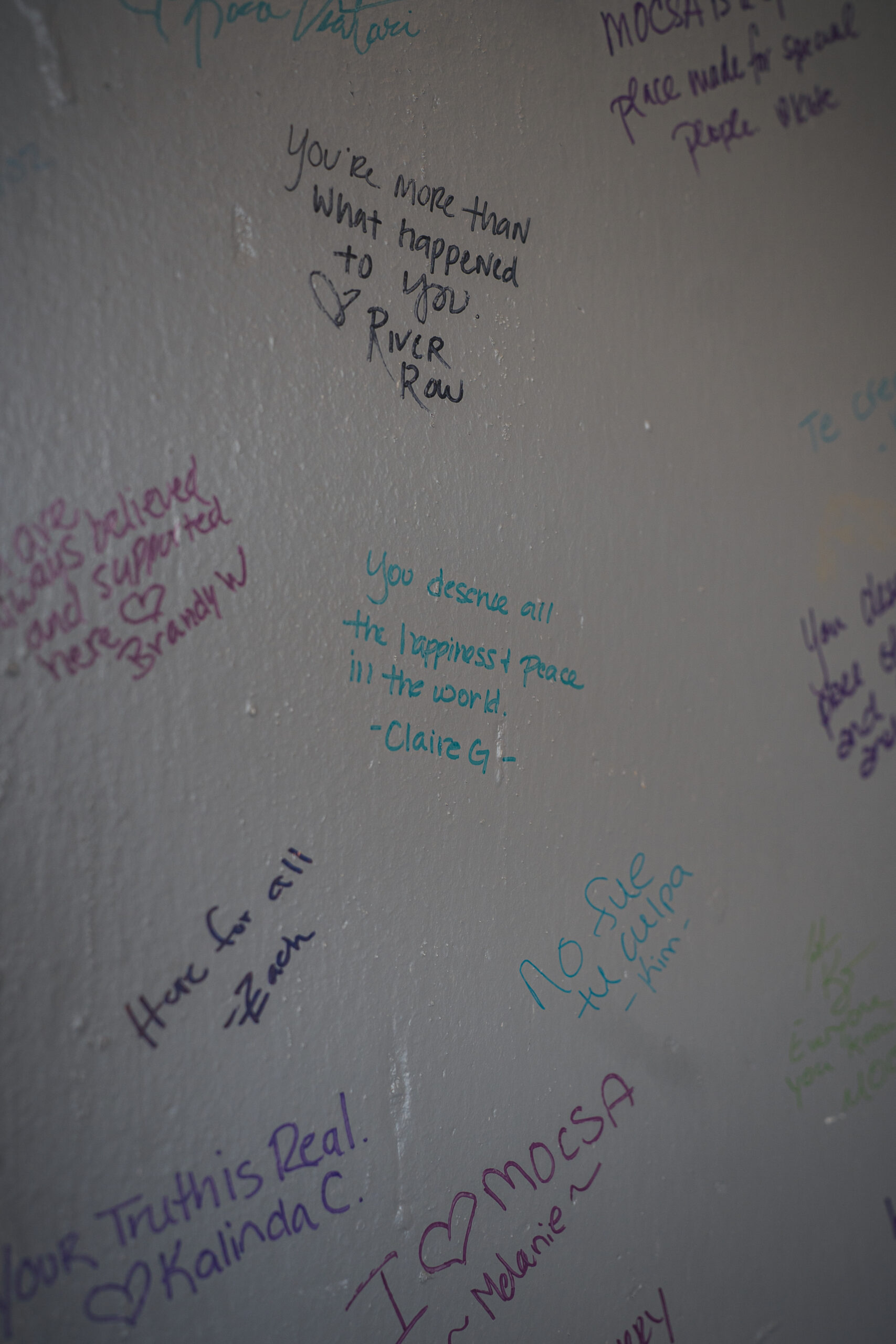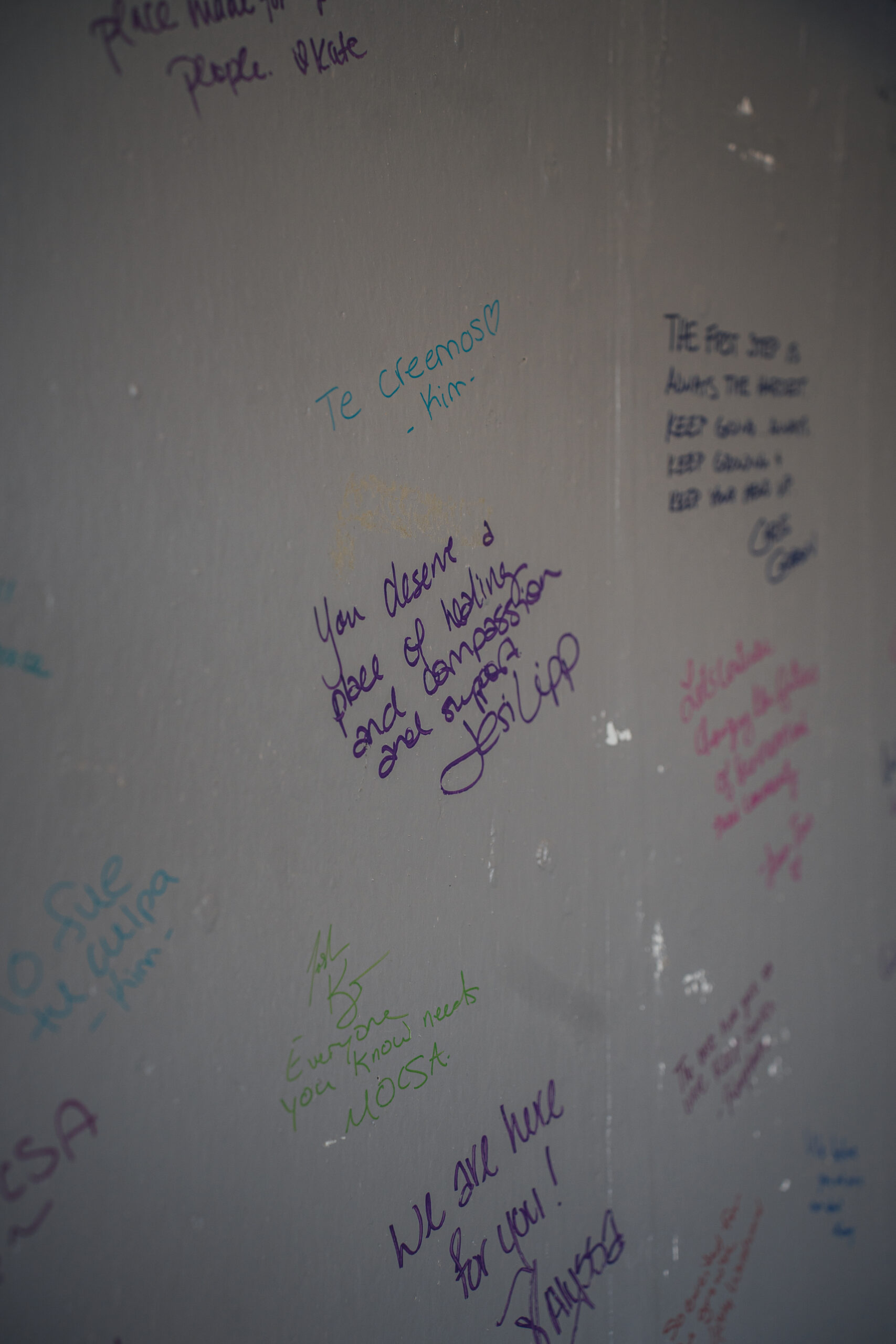In a historic moment for MOCSA, community leaders, supporters, and advocates gathered on October 29th to mark the groundbreaking of a new facility at 6500 Euclid Ave that will serve as a beacon of hope for survivors of sexual violence. The new building, slated to be Kansas City’s first campus developed specifically to support survivors and prevent sexual violence, represents a major milestone in MOCSA’s 50-year history.
A Vision for the Future
Julie Donelon, MOCSA President & CEO, opened the ceremony by thanking everyone in attendance and reflecting on the organization’s growth. “In the last ten years, we have tripled our resources and expanded our staff to meet the needs of our community,” Julie said. “With over 100 staff members, we are now the largest rape crisis center in the nation and a regional leader in providing essential support to survivors of sexual violence.”
This new building will more than double MOCSA’s physical capacity and offer an expanded range of services, including private therapy rooms, group therapy spaces, art and yoga rooms, children’s spaces, and outdoor areas designed to create a serene, healing environment for survivors.
“This groundbreaking represents more than just a new building,” Julie continued. “It’s a symbol of hope and healing for those impacted by sexual violence, and a testament to the commitment of our community to ending sexual violence.”
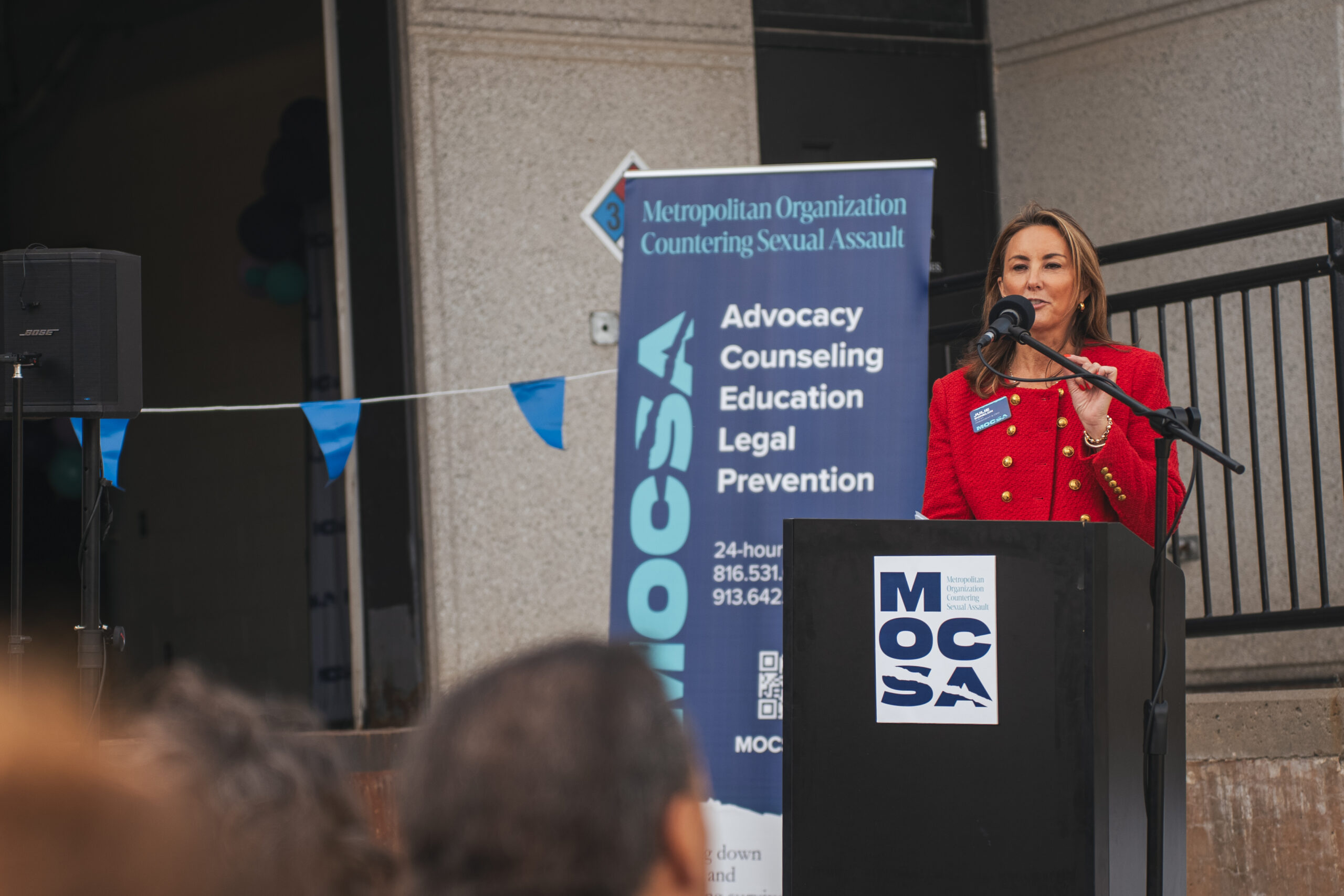
Julie Donelon, MOCSA President & CEO
Building a Stronger Community
Ingrid VanBiber, MOCSA’s Board Chair, shared the rationale behind the choice of location for the new building. “We are centrally located in our service area, easily accessible from Highway 71, and close to public transportation,” Ingrid explained. “This site is in an area at high risk for child sexual abuse, making it a crucial location for us to provide vital services and support for those who need it most.”
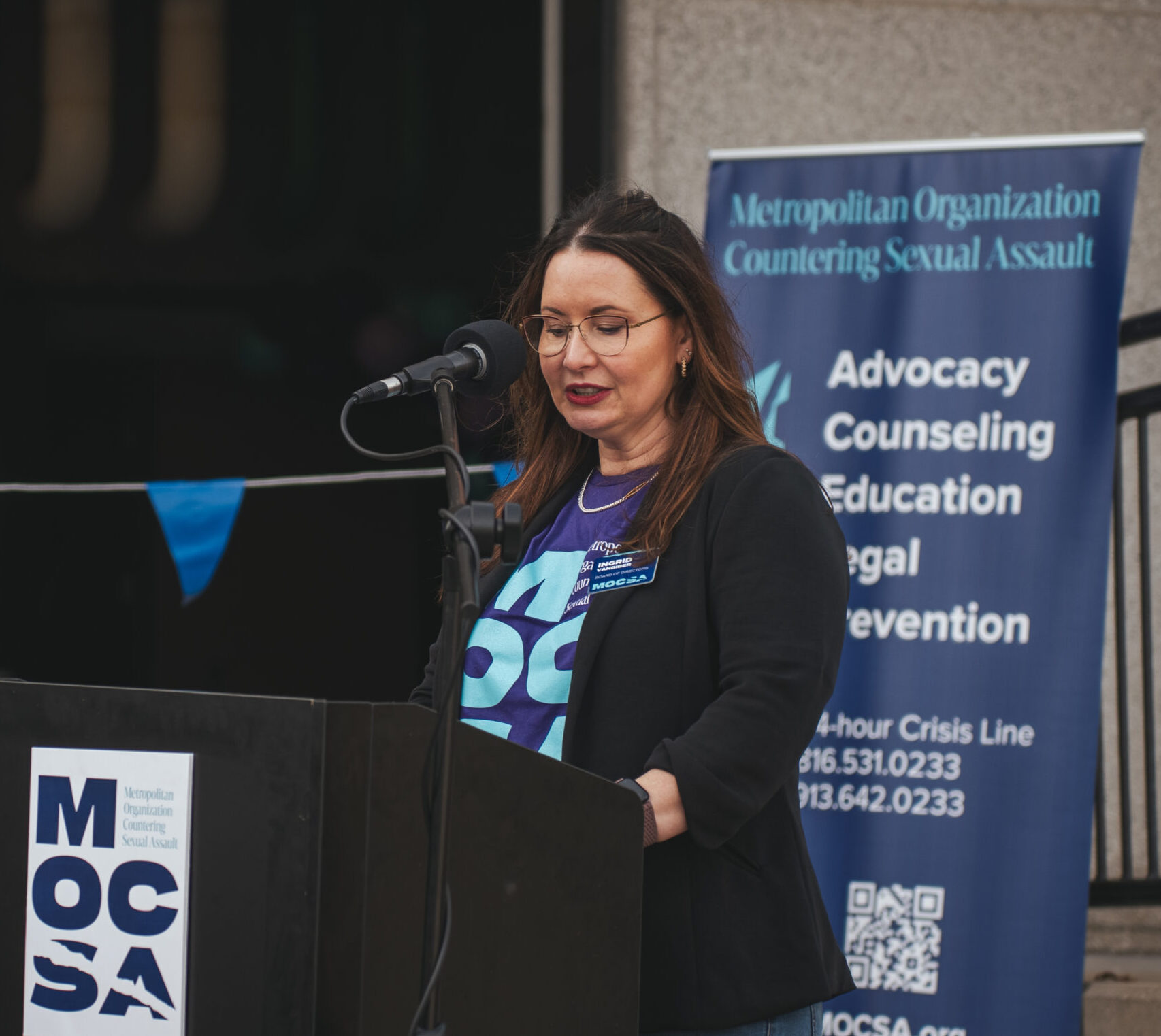
Ingrid VanBiber, MOCSA Board Chair
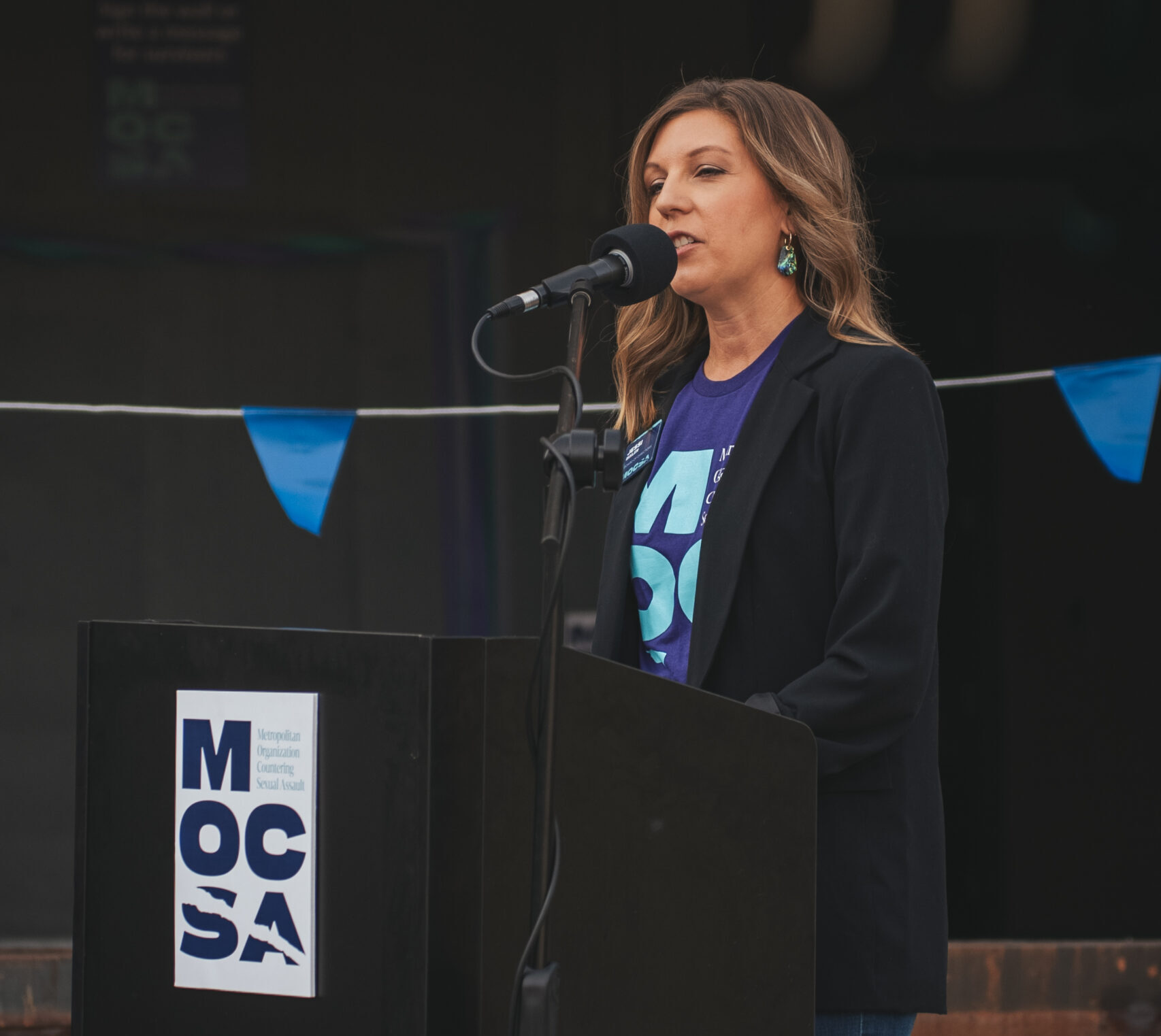
Jessi Bixler, MOCSA Board Vice Chair
In addition to serving survivors, the new building will foster community partnerships by offering space for training, education, and collaboration on issues related to sexual violence prevention. MOCSA is committed to providing a comprehensive, trauma-informed approach to support survivors, and this new facility will allow the organization to continue offering these services free of charge to thousands of individuals each year.
A Personal Journey
Jessi Bixler, a survivor and MOCSA’s Board Vice Chair, shared her personal experience with the organization. “I remember walking into MOCSA’s current space 10 years ago,” Jessi said. “I felt broken, lost, and alone. But when I left, I felt believed, supported, and validated. This new building will continue to offer the same hope I received. Every square inch of this new space will be centered around supporting those impacted by sexual violence.”
To honor survivors like Jessi and mark this important day, MOCSA invited attendees to sign the wall in the new building’s lobby, a gesture of solidarity and support for the thousands of survivors who will walk through its doors in the years to come.
Looking Ahead
As MOCSA continues to work toward its $18 million Capital Campaign goal, Julie announced that the organization has already raised $17 million in support of the new building.
“People who are raped should have every imaginable support that they can get,” Congressman Emanuel Cleaver II, said. “I was proud to secure $1 million to help fund the project, empowering MOCSA to serve more survivors and families than ever before.”
“We are incredibly grateful to Congressman Cleaver and other local leaders who have helped make this vision a reality,” Julie said. This could not be possible without the support of our donors, staff, volunteers and community.
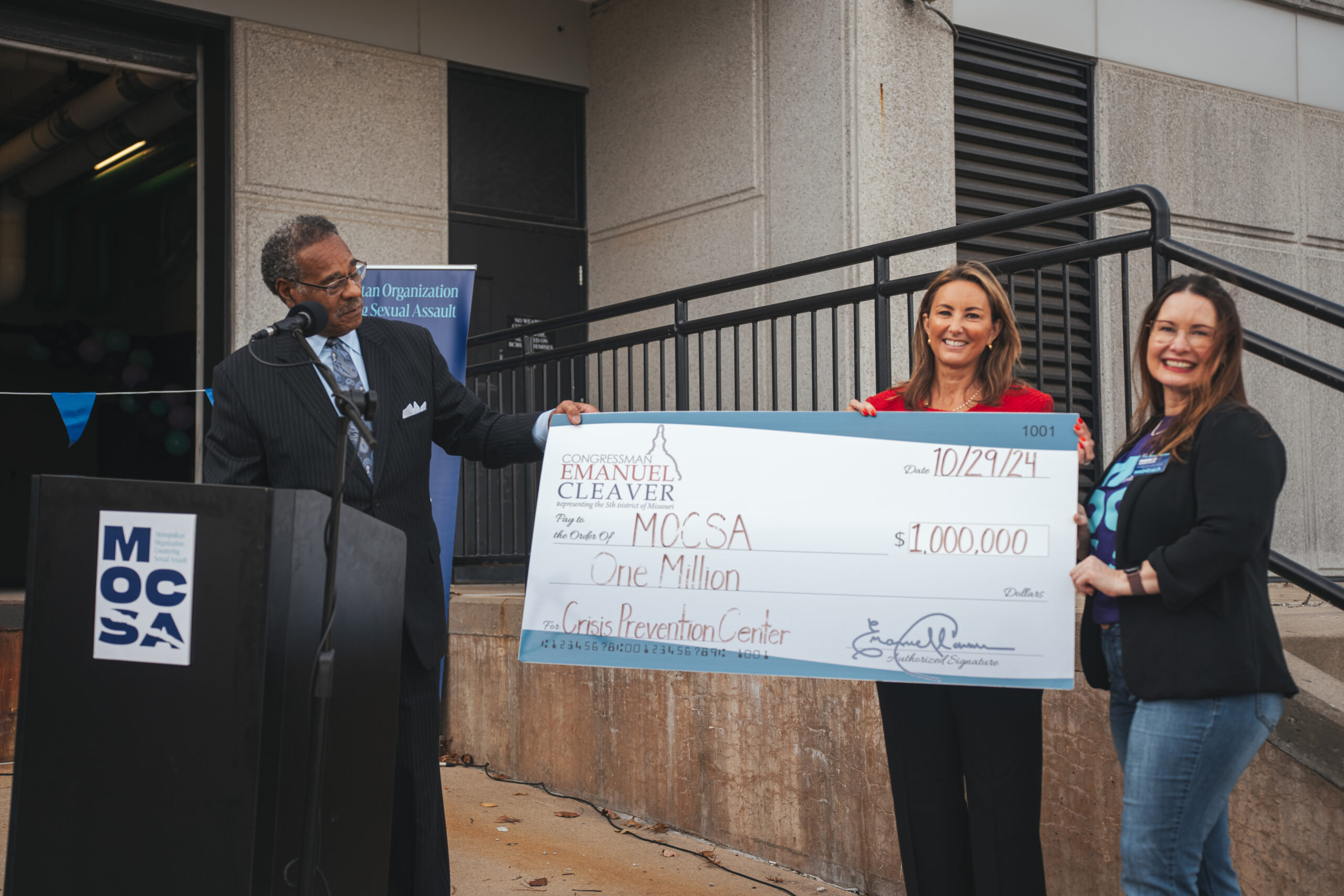
Once completed, the new MOCSA campus will not only provide a space for healing but also stand as a testament to the resilience of survivors and the strength of the Kansas City community. The new building will be a lasting symbol of the work MOCSA does every day to prevent sexual violence, support survivors, and build a community where everyone is safe.
MOCSA’s new building is not just a physical structure—it is a symbol of the collective commitment to end sexual violence and to ensure that survivors have a place of healing, support, and strength for years to come.
